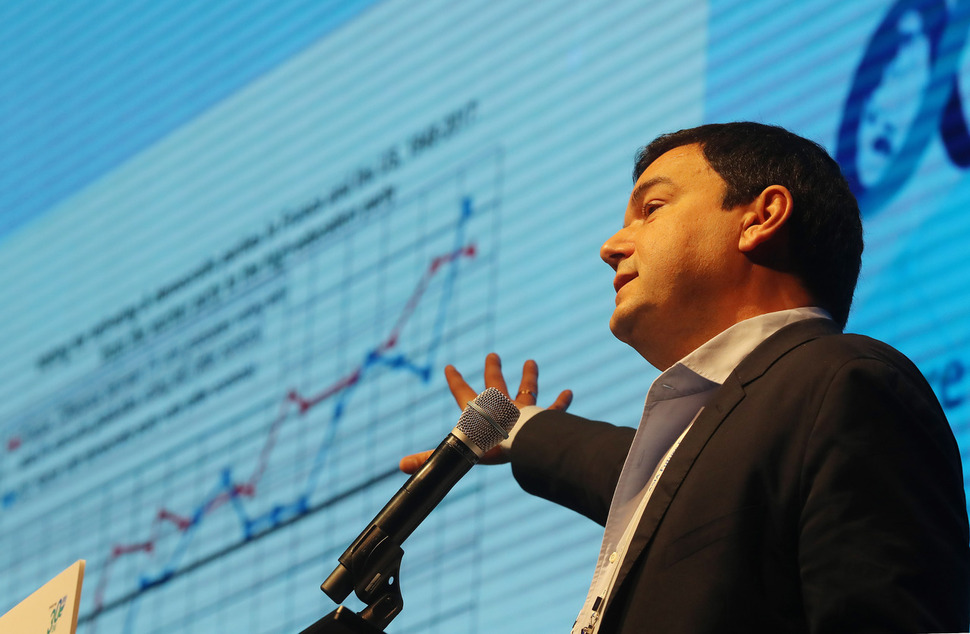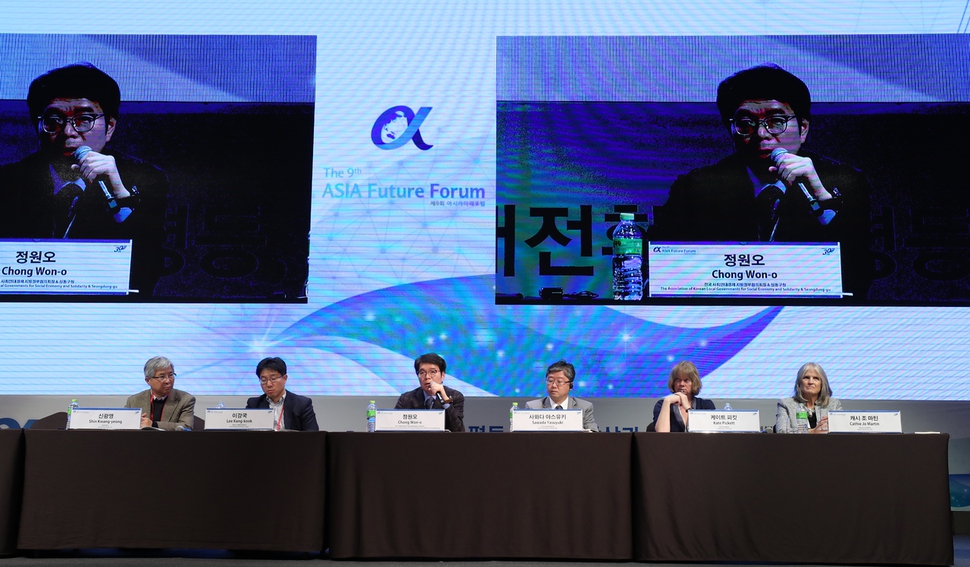 |
|
Professor Thomas Piketty of the Paris School of Economics addresses inequality in his keynote address at the 2018 Asia Future Forum in Seoul’s Dragon City Hotel on Oct. 30. (Shin So-young, staff photographer)
|
Renowned economics professor emphasizes proactive policies and sustainability
Appearing as the first keynote speaker on Oct. 30 for the first day of the 2018 Asia Future Forum, organized by the Hankyoreh, Paris School of Economics Professor Thomas Piketty began his talk on the topic “Inequality Today and Its Solution” with a series of questions: “Why has democracy failed to resolve inequality, and why has the political response to deepening inequality been so tepid?” and “Why is deepening inequality not translating and igniting into strong demands for redistribution from low-income groups?”
In a talk on the topic “Inequality: Present and Future,” Piketty noted that the political debate surrounding inequality in income, assets, and education is “very multidimensional, multilayered, and complex.”
“Overcoming inequality will require an strong egalitarianism-oriented party platform that involves raising the progressive income tax rate and providing more public goods in education,” he said. Whereas the focus of his inequality solution was on a stronger global progressive tax four years ago when he first arrived in South Korea with his book “Capital in the Twenty-First Century,” his solution this time clearly stated the need for a political response.
Reducing inequality without hampering production
Speaking for more than an hour on Oct. 30, Piketty repeatedly stressed the changes to the political structure – including income and inheritance taxes – that were central to the global reduction in income equality during the mid-20th century. The US federal income tax rate for the highest earners was cumulatively raised by 82 percent by the 1980s.
Piketty noted that US capitalism did not collapse after this political response, but recorded very high rates of increase in productivity between the end of the Second World War and the 1980s.
“This experience shows that it is possible to reduce the inequality gap without declining productivity,” he said.
“While a progressive increase in the income tax is certainly a difficult proposition politically, we need a proactive political response if inequality is to be reduced,” he added.
He went on to stress that income and inheritance tax rates could also represent the most important means of combating inequality in East Asian countries like South Korea, China, and Japan – and that a structure of party voting to establish “political forces against inequality” influences the structure and resolution of inequality.
 |
|
Panelists discuss inequality measures and sustainability at the 2018 Asia Future Forum in Seoul’s Dragon City Hotel on Oct. 30. (Baek So-ah, staff photographer)
|







